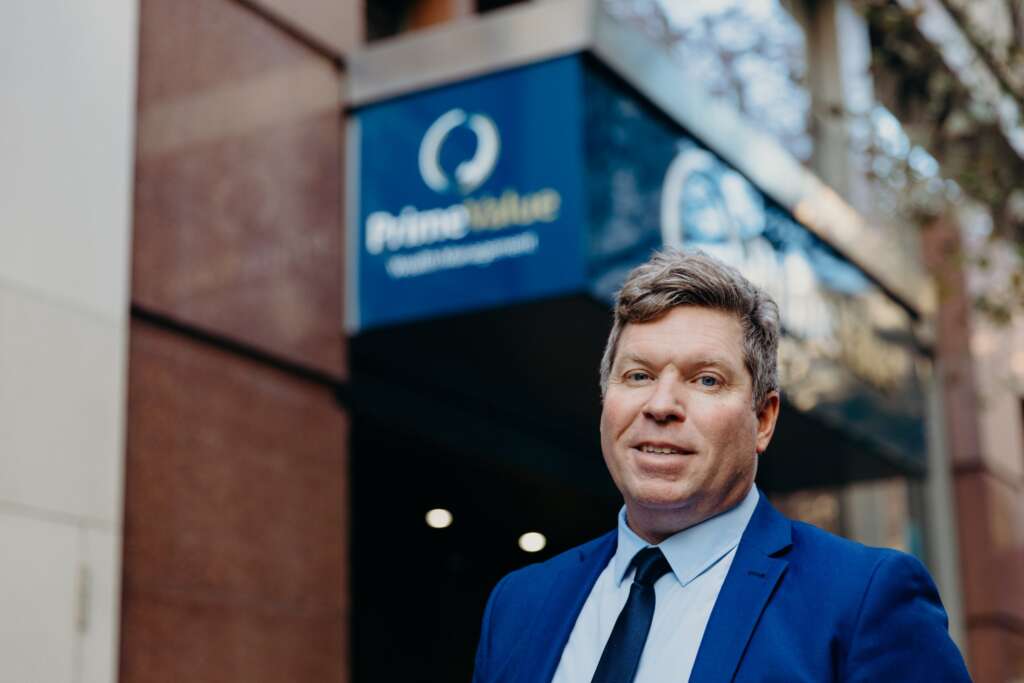How I build margin for mission into business
Bringing the secular and sacred together
When former adventure traveller, mission worker and church minister Andrew Russell joined Melbourne-based boutique investment manager Prime Value, he negotiated a four-day week to leave a margin for mission and ministry.
For the past decade, Russell has followed the motto “no margin, no mission”, coined by American management thinker Peter Drucker, where he has carved out half a day or a day each week to “have a coffee with someone and talk mission and their purpose, or giving them a book to read.”
The Director of Investor Relations at Prime Value points out that the parable of the Good Samaritan exemplifies the power of retaining a comfortable margin.
“Those other men who passed by that guy were good men; they were talented. They just did not have the time to stop. Yet the Good Samaritan who came, had margin with his time. He had margin with his resources. He tore up bits of his clothing and made bandages. He had margin with his money. He gave the innkeeper money and said, ‘I will return.’ I mean, this is a powerful story of margin, right? We still tell that man’s story today, thousands of years later.
“But you know what? That Good Samaritan was late for his next appointment. He might’ve even lost the business.”
“That Good Samaritan was late for his next appointment. He might’ve even lost the business.”
Russell says he is often late for his next bit of business – which I can attest to as he asked for three minutes before joining our Zoom meeting. But he believes “God’s economy” operates for him at Prime Value in that funds often flow in for him in unusual ways. And that’s because he, along with the other Christian leaders in his company, are “trying to do both the sacred and the secular.”
“Every job I’ve had has been the same and I’ve tried intentionally just to use my spiritual gifts, whether I’m in mission world or the business world – because I actually believe the sacred and the secular collide. It takes time, but you can work out how to straddle both of those in your week, and build in margin for mission and ministry.”
Russell describes himself as a “mobiliser, an encourager and a maximiser.” As such, he often invites his clients to missional things locally and globally. For example, at a good financial stewardship dinner in Sydney last week, Prime’s three Christian leaders, Russell, his CEO Yak Yong Quek and chairman John Sikkema, talked to Christian investors and charities about partnering with the company to get more cash flow and growing long-term assets.
“We gave Christians and unchurched the opportunity to work out what they could do with their time, their talent and their treasure.”
“That was a wonderful night of worship – 30-something people encouraging one another, iron sharpening iron. The next day, I flew back here to Melbourne and we ran an event in our home because we are passionate about the Entrust Foundation, which works in 13 countries, 70 projects.
“And we filled this home with 60 people who are passionate about one of the five areas Entrust works in, which is anti-trafficking. And we had a young friend, Panha, there because my sister lives in Cambodia. We have a personal connection with Alli Mellon who started the Hard Places Community [in 2008] to work with young boys and men who are sold into slavery.
“That captures in my heart as much as the night before [when I was] working for my boss and working hard for him. We filled this home and we cast vision and we gave Christians and unchurched the opportunity to work out what they could do with their time, their talent and their treasure to put an end to this terrible thing.
“So, my work gives me wonderful opportunities, but at that function, 10 or 15 of them are my clients or becoming clients. It all just blurs together. But they know my heart is for them to prosper personally and to prosper in business.”
“We are just custodians of it, and what a privilege then to be good stewards of whatever’s in our hand.”
Russell, who comes from a Northern Irish evangelical Brethren background, spent 10 years mobilising men and women for long-term ministry for Pioneers Australia before going into business and working part-time as a mission minister for a community church in Melbourne. “I gave the church my Thursday and my Sunday, but many thought I worked there full time. I would say to them, ‘Guys, I’m part-time here, but with a full-time heart to see us have a biblical understanding of mission and lostness.”
He continues to invest time in Halftime Australia, helping leaders find their purpose in the second phase of their career, moving from success for themselves to a life of significance, legacy and living for others, and with Phil Simpson at the Shed Door Ministry – memorably dubbed “church in thongs” by Eternity writer Penny Mulvey.

Andrew Russell. Credit: Ian Lee Photography Ian Lee Photography
Russell’s motivation for involvement in all these things, business and ministry alike, is being an example to his three girls, as his parents were for him.
“I’ve got a 19-year-old, a 16-year-old and a 12-year-old, and they are watching Mum and Dad like I watched my parents. My parents are like heroes to me. My parents gave their life to local and global mission. They were not overly wealthy but on a Sunday, we’d have every straggler home after church – this is good Northern Irish hospitality. My mum and dad would press money into the palms of people’s hands at the door. And I used to think, ‘Well, that’s our money right now.’
“But it’s not ours. Most of us, Christian and unchristian, think our money is ours, so we hold it very tight. We’re very afraid of losing it. And yet we are just custodians of it, and what a privilege then to be good stewards of whatever’s in our hand. Are we compounding and amplifying it for the kingdom?”
Email This Story
Why not send this to a friend?


